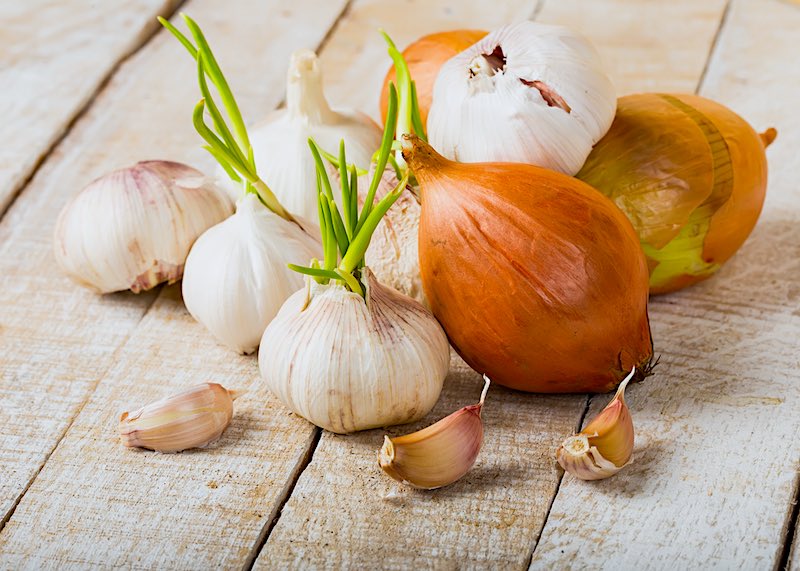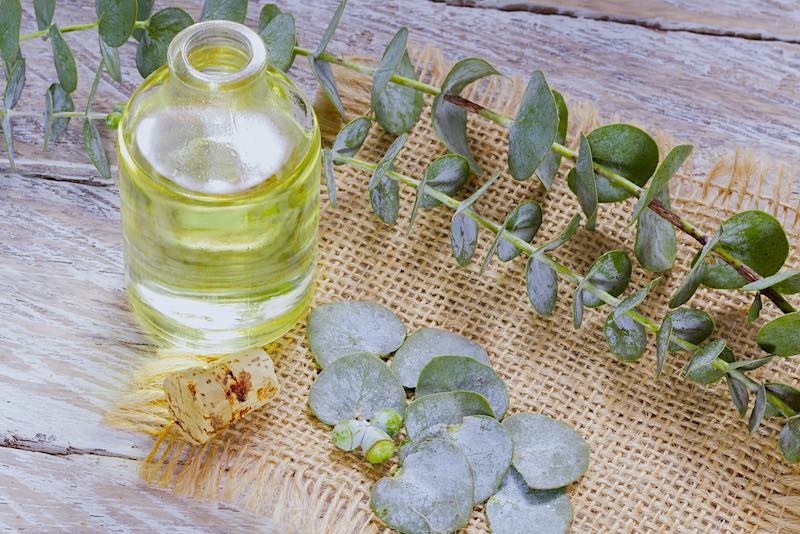Organic insecticides are helpful tools homesteaders can use to naturally rid their garden of pests and critters. As compared to commercial pesticides, they’re safer and more affordable. Furthermore, now that everyone is advised to stay at home it's best to rely on what you have on your homestead.
And since we know how hard it is to find effective homemade insecticides, we’ve taken the liberty of compiling different options for you. That way, you spend less time researching and spend more time gardening.
RELATED: 22 Gardening Tips To Earn Your Most Fruitful Yield Yet
6 Homemade Organic Insecticides Safe for Gardening and Farming
1. Spicy Tabasco Pest Repellent Spray
[instagram url=https://www.instagram.com/p/B-fZiQ4DJm4/ hidecaption=true width=800]
Notice ants, mealy bugs, spider mites, or aphids on your plants? Try this tabasco pest repellent. Capsaicin, its active ingredient, is powerful enough to kill these annoying pests and prevent other ones from coming back.
Also, spraying tabasco-based insecticides on your plants makes the surface taste spicy and bitter. This helps prevent critters such as birds, squirrels, raccoons, mice, and even deers from feeding on your crops.
Instructions:
- Get a one-liter bottle filled with water and pour in five tablespoons of Tabasco sauce and one teaspoon of dishwashing soap.
- Shake well then transfer to a clean spray bottle.
2. All-Around Garlic and Onion-Based Pesticide Spray

Mixing garlic and onions together creates an all-around pesticide that protects both edible and ornamental plants.
Garlic is a popular ingredient in many organic insecticides. It’s known to repel termites, ants, spider mites, beetles, whiteflies, aphids, and cabbage worms. Meanwhile, onions protect edible crops from rabbits, small whites, and cabbage loopers.
Instructions:
- Mince eight cloves of garlic and one onion then submerge them in 200 milliliters of mineral oil.
- Pound the mixture together until the ingredients combine then let the mixture sit overnight.
- Dilute three tablespoons of the onion-garlic mixture in half a liter of water, mix well, then transfer to a clean spray bottle.
- Store the remaining onion-garlic mixture in a clean jar.
3. Tobacco Juice Pest Repellent Spray
The nicotine in organic tobacco is a natural pest repellent. It deters spider mites, leaf miners, beetles, and aphids, among other insects. Plus, nicotine is fast-acting. A few sprays of this nicotine organic pesticide will cause rapacious pests to fall off one by one.
Instructions:
- Mix one cup of organic tobacco in a one-gallon jug of water.
- Let the mixture sit for 24 hours.
- Afterward, shake the gallon of water and then transfer some of its contents to a clean spray bottle.
Note: Don't use tobacco-based organic insecticides on solanaceous plants such as eggplants, potatoes, and tomatoes.
4. Eucalyptus and Detergent Pesticide

Distilled eucalyptus oil is a powerful pest deterrent. It repels flies, wasps, and bees from flying around your homestead garden. At the same time, it’s potent enough to kill earwigs, mites, whiteflies, and aphids upon contact.
Instructions:
- Mix one teaspoon of eucalyptus oil and 1/2 teaspoon of dishwashing soap in two cups of water.
- Stir the ingredients together then transfer to a clean spray bottle.
RELATED: Why Homesteaders Should Practice Subsistence Farming Now
5. Powerful Neem-Oil Based Pesticide
Neem oil is a very common pesticide ingredient. In fact, both commercial and organic insecticides make use of it.
What makes it so popular is its effectivity. Once you spray your plants with it, pests that come in contact with it will immediately die. Meanwhile, its strong smell will repel nearby pests.
You can use it to control the activity of pests such as spider mites, moth larvae, aphids, whiteflies, and Japanese beetles.
Instructions:
- Pour 15 milliliters of neem oil and 1/2 teaspoon of dishwashing soap in one liter of warm water.
- Slowly stir the mixture together then transfer to a clean bottle.
6. Chrysanthemum Flower Insecticide
What makes Chrysanthemum an effective pesticide is its active ingredient pyrethrum. It immobilizes pests by entering their nervous system. Chrysanthemum is most effective against aphids, cabbage worms, roundworms, spider mites, leafhoppers, pickle worms, and ticks.
Instructions:
- Boil 100 grams of Chrysanthemum flowers in 1 liter of water for 20 minutes.
- Strain the flowers out, let the mixture cool down, then transfer to a clean spray bottle.
Pro Tip: Planning to use this recipe often? Plant some Chrysanthemum flowers in your garden! Not only will you have your own stock of petals, but using them as a companion plant is also an effective way to repel pests.
BONUS! Plain Dishwashing Soap Pesticide
[instagram url=https://www.instagram.com/p/BzkqtRXgYNm/ hidecaption=true width=800]
Let’s keep it simple. You don’t need a lot to make your own organic insecticides, even regular dishwashing soap would work. Spraying soap directly on insects strips off their exterior coating. This leads to death caused by dehydration.
Instructions:
- Mix three tablespoons of dishwashing soap with a gallon of water.
- Transfer some of its contents to a clean spray bottle.
See how you can make your own organic pesticide in this video from Nilkanta Halder, The Indian Gardener:
With the growing risk of using chemicals for gardening and farming, more and more homesteaders are looking into organic pest control products. They pose no threat to the crops or the gardeners who grow them.
Note that these are just some recipes you can try. So feel free to explore other options to create your own arsenal of homemade organic insecticides. Just make sure you stick to all-natural ingredients.
What organic insecticides worked for you? We'd love to know about your experience. Share in the section below!
UP NEXT:
- Square Foot Gardening [Chapter 1] Homestead Handbook
- Try Many Types Of Farming For You And Your Homestead
- Top 10 Farming Games That Will Give Your Brain Some Boost
Fellow homesteaders, do you want to help others learn from your journey by becoming one of our original contributors? Write for us!


Hi..i have the same plant but leaves clour is changing into black spots how to get rid of that can yu let me know what is problem my plant is getting effected